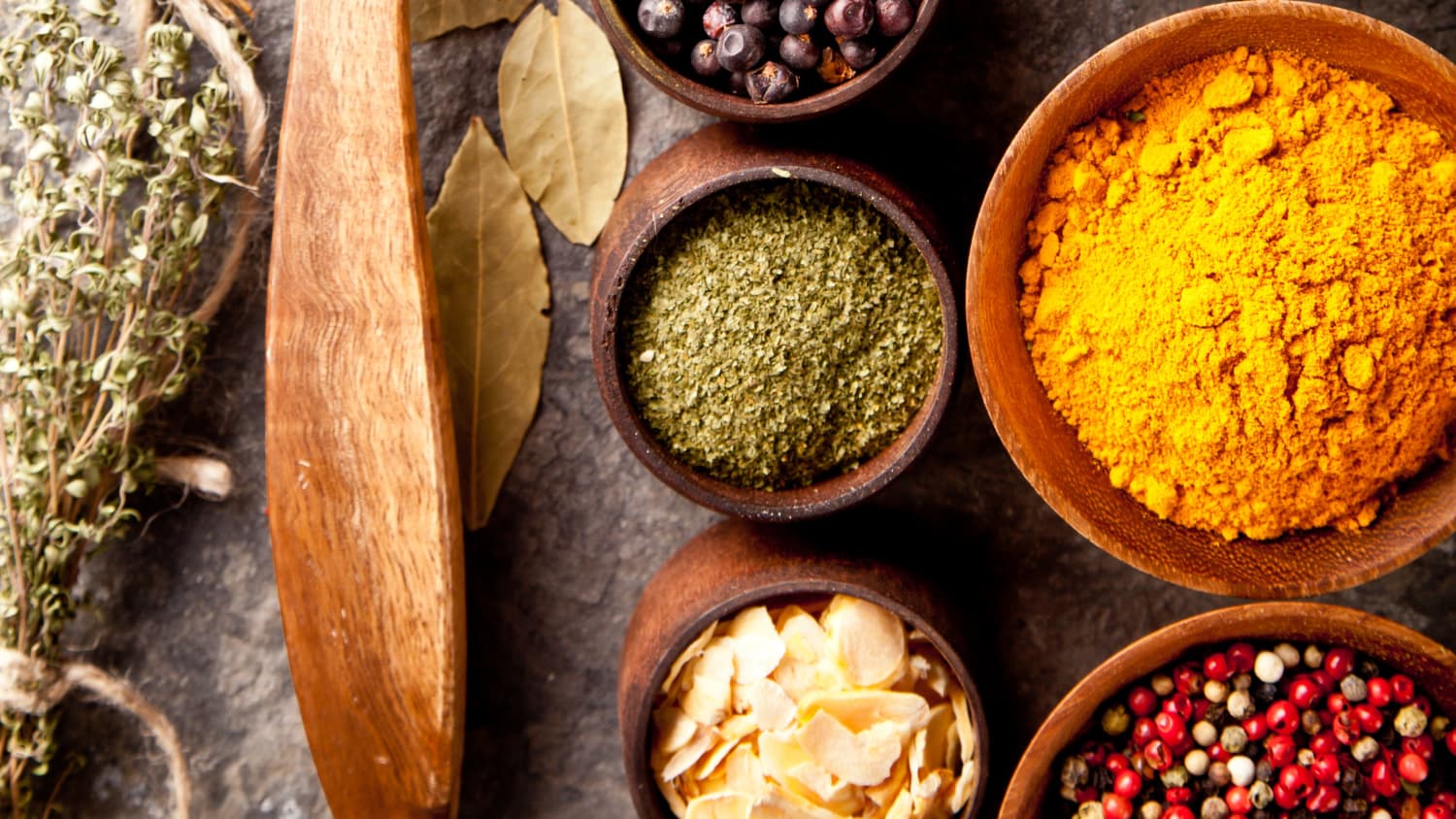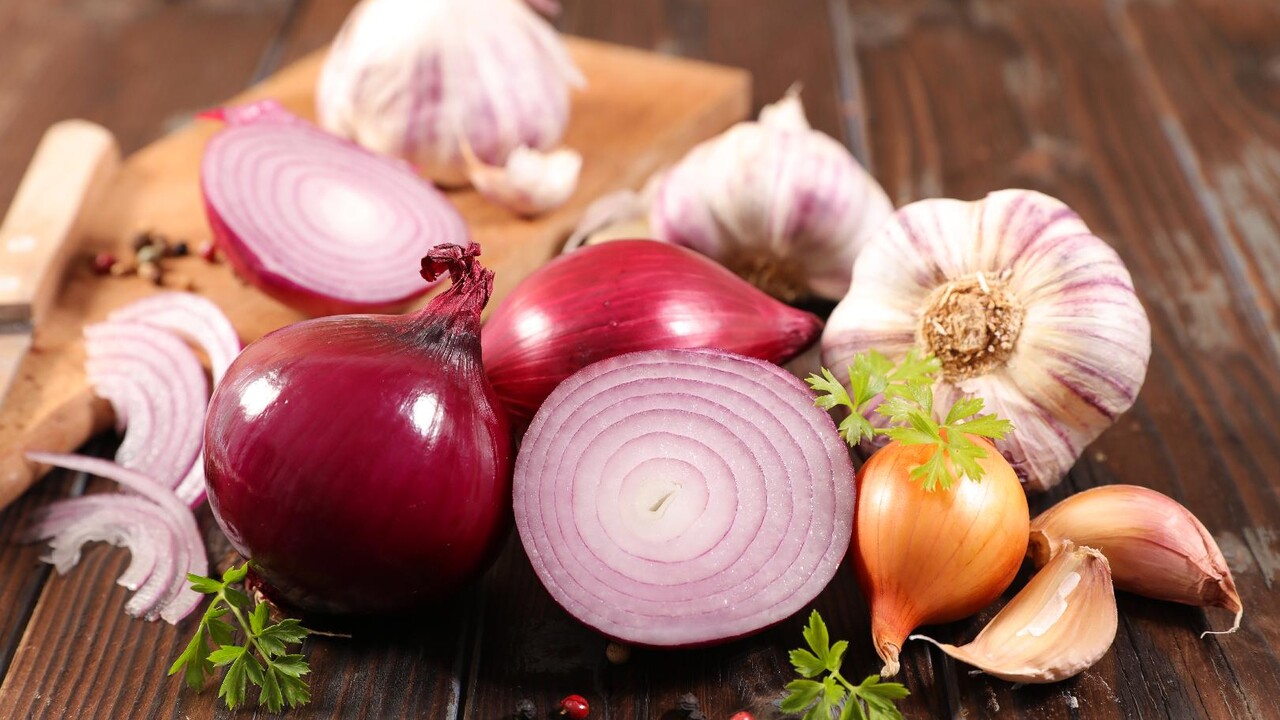A well-stocked kitchen is required for preparing a quick, nutritious meal. On the other hand, many popular healthy staples are highly perishable and must be consumed within a few days, causing many home cooks to deplete their food supplies quickly.
Even if you’re out of your usual go-to foods, you can keep a number of healthy, long-lasting staples in your pantry, freezer, and fridge and use them to make nutrient-dense meals and snacks.
Here are 15 healthy staples that you should keep on hand at all times.
1. Dried and Canned Beans With Lentils

Lentils and beans are two of the healthy staples you can eat. Furthermore, dried and canned beans and lentils have incredibly long shelf lives, making them excellent non-perishable food to keep in your kitchen.
Canned beans can be kept in the pantry at room temperature (68°F or 20°C) for 2–5 years, while dried beans can be kept for ten years or more. Dried beans have a long shelf life because they do not contain the moisture required to promote microbial growth.
In addition to being shelf-stable, canned and dried beans and lentils are extremely nutritious, providing a wealth of nutrients such as fibre, magnesium, B vitamins, and iron.
Chili, soups, and salads can all benefit from adding black beans, chickpeas, lentils, and kidney beans.
2. Nuts, Seeds, and Their Butter

Moving on to our next healthy staples, we have nuts and seeds that are nutritional powerhouses, providing healthy fats, protein, fibre, and various vitamins and minerals.
Depending on the type, nuts and seeds can be stored at room temperature for 1–4 months, making them an excellent pantry ingredient.
Natural nut and seed butter last longer and are healthier than their commercial counterparts, which typically contain added oils and sugar.
Nuts and seeds can be found in various foods, including oatmeal, yoghurt, trail mix, and salads. Nut and seed butter are great additions to smoothies, and they can also be mixed into sauces or spread on fruits and vegetables for a quick, satisfying snack.
3. Grains

Salads, grain bowls, soups, and pilafs are great options for healthy staples in a pinch because of their versatility and convenience.
Grains such as spelt, brown rice, amaranth, bulgur, oats, and quinoa can be stored safely at room temperature for months to years, depending on the type, making them an excellent choice for bulk purchases.
Furthermore, these healthy staples are high in fibre and micronutrients such as B vitamins, manganese, and magnesium. Eating them may help protect against conditions like heart disease and certain cancers.
4. Frozen Fruit and Vegetables

Many fresh fruits and vegetables, such as berries and greens, have a short shelf life. However, purchasing these foods frozen allows you to always have nutrient-dense produce on hand.
Frozen fruits and vegetables are those healthy staples that have micronutrient content comparable to fresh produce, making them a healthy and convenient freezer staple.
Frozen greens can be added to sautés, soups, and smoothies. Frozen berries, like fresh berries, can add natural sweetness to oatmeal, smoothies, baked goods, and yoghurt parfaits.
5. Honey and Maple Syrups

Everyone requires a little sweetness now and then. Honey and maple syrup are natural sweeteners with distinct health benefits.
Raw honey, for example, has antimicrobial and anti-inflammatory properties as well as powerful antioxidants. Maple syrup is high in antioxidants and contains trace amounts of magnesium, potassium, and manganese.
Both honey and maple syrup can be used to enhance the flavour and depth of both sweet and savoury dishes. Just keep in mind that too much sugar from any source can be harmful to your overall health.
6. Apple Cider Vinegar

In the kitchen, apple cider vinegar can be used in a variety of ways. It can, for example, be used as an effective all-purpose cleaner and as a flavorful addition to recipes such as sauces, dressings, and baked goods.
This tangy vinegar is not only versatile, but it is also extremely healthy. It may have anti-diabetic, anti-inflammatory, antioxidant, and heart-health-promoting properties, according to research.
7. Healthy Fats

Depending on the type, certain fats, such as coconut oil, ghee, and olive oil, can be safely stored at room temperature for a year or more. As a result, you can buy these pantry staples in bulk so that you always have a healthy fat source on hand.
Cooking with these healthy staples enhances the absorption of fat-soluble vitamins, minerals, and antioxidants from food and adds flavour to recipes.
8. Fermented Foods

Fermented foods such as sauerkraut, kimchi, and pickles are tasty and versatile, and they have a number of health benefits. According to research, they can improve digestive health and may aid in the reduction of inflammation and blood sugar levels.
Furthermore, because these healthy staples have a long shelf life, you can stock up without worrying about food waste. Sauerkraut and pickles, for example, can be kept at room temperature for up to 18 months.
These healthy staples can be eaten straight from the jar or used as flavorful toppings for salads and other dishes.
9. Spices and Dried Herbs

A well-stocked spice rack is essential for creating flavorful recipes. Spices and herbs enhance the flavour of dishes and can be useful when you’re stuck in a recipe rut.
Moreover, incorporating dried herbs and spices into your diet can benefit your health in a variety of ways.
Turmeric, cayenne pepper, rosemary, cinnamon, ginger, oregano, and cumin all have significant health benefits and may help reduce inflammation and your risk of certain diseases.
10. Garlic and Onions

Garlic and onions are the best healthy staples that are the foundation of many recipes, and they are favoured by both professional and home cooks due to their versatility and long shelf life.
Both have been shown to be beneficial to your health in a variety of ways, and consuming them on a regular basis may help reduce your risk of a variety of illnesses, including certain cancers, mental decline, heart disease, and diabetes.
11. Fresh Fruits and Veggies

Although many fresh fruits and vegetables spoil quickly even when refrigerated, there are a variety of long-lasting varieties available.
Sweet potatoes, butternut squash, apples, beets, cabbage, spaghetti squash, rutabagas, pomegranate, carrots, and citrus fruits are just a few examples of healthy staples that can be stored in the fridge or on the counter for a few weeks or more.
12. Frozen Fish, Poultry, and Meat

While fresh fish, meat, and poultry are highly perishable, frozen versions of these products can be kept at the proper temperature for much longer.
Fresh chicken and meat, for example, can be kept frozen (0°F or -17°C) for up to a year, while fish such as cod and haddock can be kept frozen for up to 5 months.
When fresh animal protein sources are limited, having a good supply of frozen poultry, meat, and fish on hand can help you prepare healthy, protein-rich meals.
13. Healthy Condiments

In a matter of seconds, a dash of hot sauce or a drizzle of tahini can transform a dish from mundane to sensational.
However, it is critical to stock your pantry with healthy condiments and avoids purchasing highly processed sugar-laden products.
Tahini, salsa, coconut aminos, balsamic vinegar, coconut butter, mustard, nutritional yeast, tamari, raw honey, and sriracha are just a few examples of healthy staples.
14. Eggs

Eggs are versatile healthy staples that can be eaten any time of day. They’re high in protein and nearly every vitamin and mineral your body requires to thrive, which is why they’re known as nature’s multivitamins.
Although eggs are considered perishable, they can be stored in the refrigerator for up to 5 weeks.
Make a nutrient-dense veggie omelette or add a fried egg to oatmeal, salads, or vegetable dishes to increase protein content.
If possible, buy pasture-raised eggs. Eggs from pastured hens are not only more nutritious than those from caged hens, but the hens who lay them are typically treated much better as well. They have access to outdoor space and can engage in normal foraging behaviour.
15. Full Fat Yoghurt

Yoghurt is one of the best healthy staples that can be used in a variety of recipes, making it a must-have in any well-stocked kitchen. It can be eaten with berries, mixed into smoothies, slathered on vegetables, or used to add creaminess to sauces and soups.
Although many people prefer nonfat or reduced-fat yoghurt, full-fat yoghurt is extremely nutritious and has been linked to a variety of health benefits.
Consuming full-fat yoghurt, for example, may protect against heart disease and the development of belly fat, which is a risk factor for a variety of conditions, including diabetes.
Most yoghurt can be stored in the fridge for up to three weeks and eaten well past its expiration date as long as it still looks, tastes, and smells fresh.
The Bottom Line
Keeping healthy staples in your fridge, pantry, and freezer will ensure that you always have the ingredients on hand to prepare a healthy, home-cooked meal.
By picking up a few of the foods listed above on your next few grocery trips, your kitchen will be stocked with healthy staples before you know it.

